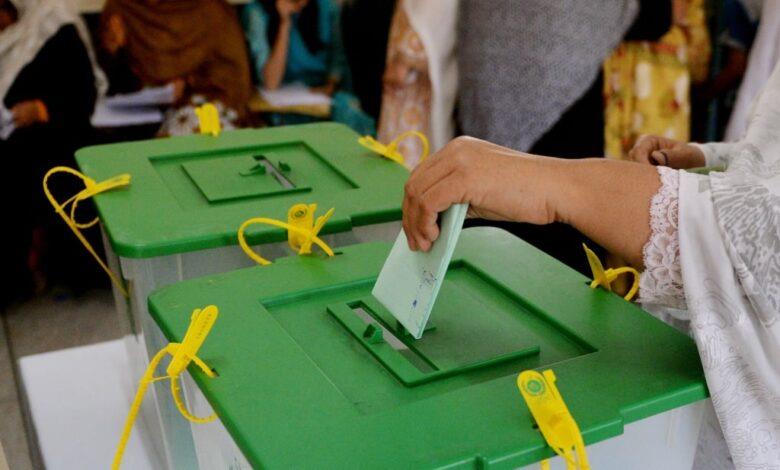
Low Women Voter Turnout In Khyber Pakhtunkhwa Elections Raises Concerns
The Election Commission of Pakistan reported that the general elections covered 113 out of 115 seats of the Khyber Pakhtunkhwa Assembly. Out of the total 9,626,987 registered women voters, 3,020,142 votes were cast, resulting in a turnout of 31.37%.
For instance, in PK 71 Khyber, out of 103,794 registered women voters, only 7,500 votes were cast on election day, representing a turnout of 6.79%. Similarly, in PK 109 Upper Waziristan, out of 130,321 registered women voters, only 8,945 votes were cast, with a turnout rate of 6.86%. In PK 34 Battagram, out of 74,156 registered women voters, 6,678 votes were cast, accounting for a 9% voter turnout.
Also Read: Pakistan Day: Celebrating Unity and Progress
However, PK 111 DI Khan One recorded the highest rate of women voting in Khyber Pakhtunkhwa at 56.80%, with 52,724 votes cast out of 92,825 registered women voters.
Moreover, the elections for two provincial assembly seats, PK 22 Bajaur and PK 91 Kohat, were postponed due to the death of candidates.
In the National Assembly elections, 44 out of 45 seats recorded a women voter turnout of 28.58%. Notably, no constituency reported a women voter turnout of less than ten percent, except for NA-27 Khyber, which recorded a percentage of 10.70%. Elections in National Assembly Constituency NA-8 Bajaur were halted due to a candidate's murder.
Regarding the low women voter turnout, the Election Commission Khyber Pakhtunkhwa spokesperson, Sohail Ahmed, clarified that constituencies with low women voting rates are assessed based on total women votes, and re-election cannot be held solely on this ratio. He mentioned the formation of a special wing in Islamabad to collect details on women's votes and formulate plans for constituencies with a turnout of less than 10%.
Nusrat Ara, a woman leader of the Awami National Party, expressed concerns about women facing various difficulties on election day, such as vote registration in different locations, lack of awareness, and traditional barriers.
Shad Begum, a social activist working for women's rights, emphasized the importance of awareness campaigns and ensuring women's participation in the electoral process.
Khadim Afridi, a journalist from the tribal district of Khyber, attributed the low voting rate of women to local customs and security concerns. Muzzamil Khan Dawar, a journalist from North Waziristan, highlighted the need for addressing security concerns and raising awareness about the importance of voting among women.

Legal Disclaimer:
MENAFN provides the
information “as is” without warranty of any kind. We do not accept
any responsibility or liability for the accuracy, content, images,
videos, licenses, completeness, legality, or reliability of the information
contained in this article. If you have any complaints or copyright
issues related to this article, kindly contact the provider above.
















Comments
No comment